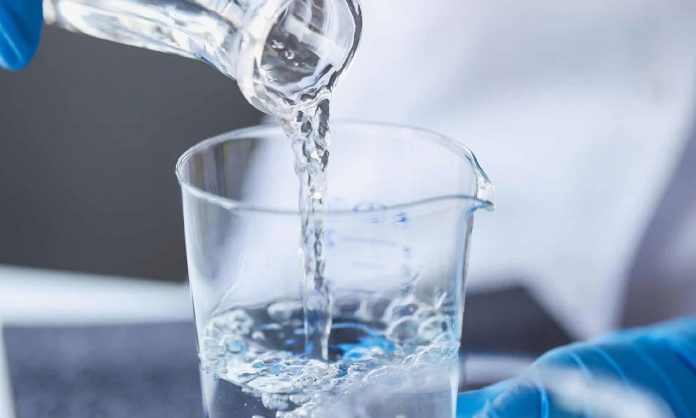Water is essential for life, and the quality of the water we consume is critical for our overall health. Among various types of water available, distilled water has gained attention for its unique purification process. But can one drink distilled water? This article delves into the properties of distilled water, its safety for consumption, potential benefits, drawbacks, and considerations for incorporating it into your daily hydration routine.
What is Distilled Water?
Distilled water is produced through a process called distillation, which involves boiling water to create steam and then condensing that steam back into a liquid. This method effectively removes impurities, minerals, and contaminants from the water, resulting in a highly purified product. The distillation process can eliminate bacteria, viruses, heavy metals, and other substances that may be present in tap or spring water.
Is Distilled Water Safe to Drink?
Yes, distilled water is safe to drink. The purification process ensures that it is free from harmful contaminants that could pose health risks. However, it’s essential to understand the implications of drinking distilled water regularly. While it does not contain harmful substances, it also lacks the minerals found in other water sources, such as calcium, magnesium, and potassium, which can play a role in our health.
Benefits of Drinking Distilled Water
1. Purity and Safety
One of the primary advantages of distilled water is its purity. The distillation process removes a wide range of contaminants, making it a safe option for individuals concerned about water quality, especially in areas where tap water may contain pollutants or contaminants.
2. Reduced Risk of Contaminants
Drinking distilled water can minimize the risk of exposure to various contaminants, including heavy metals, pesticides, and chlorine, which may be present in untreated water. This benefit is particularly significant for vulnerable populations, such as infants and those with compromised immune systems.
3. Ideal for Certain Medical Applications
Distilled water is often recommended for specific medical applications, such as in kidney dialysis machines, where impurities in water can affect treatment outcomes. It is also used in certain laboratory settings where water purity is essential.
4. Hydration Without Additives
For individuals who prefer water without any added minerals or flavors, distilled water offers a neutral taste that can be refreshing and hydrating.
Drawbacks of Drinking Distilled Water
While distilled water has its benefits, there are some potential drawbacks to consider:
1. Lack of Essential Minerals
One of the main criticisms of distilled water is that it lacks the essential minerals found in other types of water. Regularly consuming distilled water may lead to a deficiency in these important nutrients if they are not obtained from other dietary sources. Minerals such as calcium and magnesium are crucial for bone health, muscle function, and overall bodily processes.
2. Possible Electrolyte Imbalance
Drinking distilled water in excessive amounts, especially during intense physical activity or in hot weather, may contribute to an electrolyte imbalance. Electrolytes are essential for maintaining fluid balance and proper nerve and muscle function. Athletes and individuals engaged in strenuous activities should ensure they are also consuming electrolyte-rich foods or beverages.
3. Taste Preferences
Some people may find the taste of distilled water less appealing compared to mineral or spring water, which can affect their willingness to drink enough water throughout the day.
Who Should Drink Distilled Water?
Distilled water can be a suitable choice for specific groups of individuals, including:
- Individuals with Health Concerns: Those with compromised immune systems, certain medical conditions, or specific dietary restrictions may benefit from the purity of distilled water.
- People in Areas with Poor Water Quality: In regions where tap water quality is questionable or contaminated, distilled water can provide a safer alternative.
- Infants and Young Children: When preparing infant formula or for other medical uses, distilled water may be recommended to avoid exposure to contaminants.
How to Incorporate Distilled Water into Your Diet
If you decide to include distilled water in your hydration routine, consider the following tips:
- Balance with Mineral Intake: Ensure you are getting adequate essential minerals from other dietary sources, such as fruits, vegetables, nuts, and dairy products. This balance will help prevent any potential deficiencies.
- Use in Cooking: Distilled water can be a great choice for cooking, as it does not contain impurities that could affect the taste of food.
- Hydration Variety: Incorporate a variety of water sources into your diet, including mineral water or filtered water, to enjoy the benefits of different mineral content and taste profiles.
In conclusion, yes, one can drink distilled water, and it is safe for consumption. With its purity and the elimination of harmful contaminants, distilled water serves as a viable option for hydration. However, it is essential to be mindful of its lack of essential minerals and ensure a balanced intake from other dietary sources. Ultimately, understanding the pros and cons of distilled water will help you make informed choices about your hydration needs and overall health. If you have specific health concerns or dietary questions, consider consulting with a healthcare professional or registered dietitian for personalized advice.















